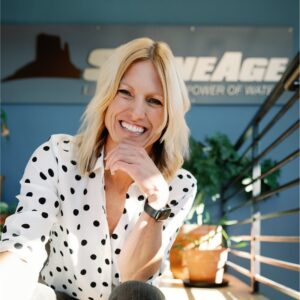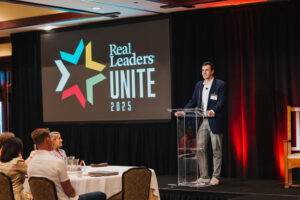Why Not Give 75%?
Read Time
2 min read
Posted on
October 14, 2025

There was never one grand moment when everything changed. No crisis, no revelation. Just a steady pulse — an inner voice that’s been there for as long as I can remember: Do good in the world.
It’s not a motto or a marketing line. It’s the question I try to keep close. Not every decision or partnership hits the mark, but I do my best to run them through one filter: Will this do some good?
That’s why our company, World Centric, gives 25% of its profits to organizations working on environmental and social issues around the world. It’s not philanthropy on the side. It’s built into our DNA.
People often ask why we chose such a big number — 25%. Most companies would never go that far. The truth? I sometimes wonder why it’s not 75%.
It’s not a question that haunts me, but one that lingers — an ongoing reflection. Through conversations like this, I realize we can do more. Maybe it’s time to stretch to 50%. The truth is, the world isn’t in a good place — environmentally, socially, or spiritually — and we can’t afford to hold back. We need to do more.
Yet, the practical side of me hesitates. There’s a quiet fear: What if the business needs the money? What if we can’t pay salaries? Doing good can’t mean putting our people at risk. It’s a delicate balance between generosity and responsibility, between vision and survival.
Still, the pull toward good is stronger than the fear. I never question our commitment to giving 25%; that’s non-negotiable. What I reflect on is whether we could give even more — and how to do that responsibly, without jeopardizing the people and purpose that make the giving possible.
When I think about the bigger picture, I believe the evolution of humanity has to be about love, compassion, empathy, sharing, and care — not personal gratification, comfort, or accumulation. We need to bring the same tenderness we show our families to the world itself because in the end, there is no real difference. Suffering is suffering.
If I leave any legacy behind, I hope it’s this: that doing good isn’t a side act or a sacrifice — it’s the most natural thing a leader can do.

Overview
The article reflects on a company’s ongoing commitment to allocate a quarter of its profits to social and environmental causes, questioning whether it should increase this share despite practical concerns about sustainability. It emphasizes balancing generosity with business responsibility and envisions leadership rooted in compassion and care. Aimed at conscious business leaders and entrepreneurs, it encourages integrating purpose deeply into company values rather than treating giving as an afterthought.
AI-Generated Overview.






